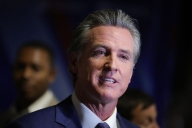You have /5 articles left.
Sign up for a free account or log in.
I am saddened and disgusted by what happened at UC Davis this weekend, just as I was saddened and disgusted by what happened at Penn State. As of yet, no one has drawn the connection (not really); but these two events have the same source: university administrations placing “other” issues ahead of doing what is decent and good (let alone what is good for education, our primary purpose, no?). Even more disappointing is that, as a contingent faculty member, I am not surprised.
We have heard about how the violence and intimidation of the UC Davis incident seriously undermines First-Amendment rights, but contingent faculty have been silenced, through fear, intimidation, and bullying for years. In our own institutions, in our own departments, our own colleagues treat us like second-class citizens. I invite you to browse the comments on this piece dealing with the AAUP’s suggestion that contingent faculty be given equal voting/representation rights within faculty governance structures. Or, simply browse the comments of some of my recent posts.
One brave tenure-track faculty member – brave because he is not tenured – has spoken out against UC Davis’ administration. Even those on the tenure-track are afraid to stand up and speak out against events such as those that happened this weekend. We applaud him for being brave, retweet and share his post, but do little or nothing ourselves. Or, like many in the comments of the AAUP news story mentioned above, throw their hands up, stating that it is too late, it has always been so, there is nothing to be done. They stay silent, protecting their own job, much like my students said was ok to do.
And, for me, even the message of solidarity and support for the students rings hollow; faculty calling for the decent and humane treatment of students when they themselves treat their colleagues who are off the tenure-track with detached indifference at best, if not outright contempt. I don’t know the author; he may work hard within the department for contingent rights. But it makes me physically ill to hear words like solidarity and that we are all part of the 99% when I know that the actions of the collective of the professoriate are responsible for the marginalization of the growing majority of the faculty.
Before you write in the comments that there is, indeed, nothing you can do and that you do feel sympathy for contingent faculty, think. Has there ever been a time where a colleague or administrator was disparaging a contingent faculty member and, instead of defending them, you stayed silent? That silence is the silence we have all learned to use to protect our jobs, to protect ourselves. That’s the silence that becomes pernicious and allows a football coach to continue abusing young boys. Is the silence surrounding the exploitation of adjuncts at the same level as the sexual exploitation of young boys? No, but it is a slippery slope; ignoring one can lead to ignoring the other.
Further, have you ever thought to yourself, since you were able to get a tenure-track job after being an adjunct, others can and should be able to do the same? Or, have you ever blamed adjuncts, even one adjunct, for their situation? How is this attitude towards contingent faculty any different from Herman Cain telling OWS protestors to “go home and get a job and a life”? You may support contingent faculty generally, but when it gets down to the specific contingent faculty members on the ground at your institution, how do you work to help them? And how persistent are you?
Collectively, we need to take back higher education and restore its priorities; we need to reorient it away from money and prestige and back towards education, to wards the students who acquire it and the faculty (ALL of them) that lead them to it. But, this cannot and will not happen until faculty acknowledge their complicity in the direction higher education has taken. We talk around the problem, we talk past the problem, we point fingers everywhere else, but we fail to look in the mirror and name our problem for what it is: WE have allowed higher education to get where it is, because we have abdicated our duty to govern our institutions and instead allowed those unconcerned and uninterested with its proper purpose – education – to use it to pursue other ends. It is now time that we take it back.





